Alain Jaume Grand Veneur La Fontaine Roussanne Aged 75 cl.
 A.O.C. Châteauneuf-du-Pape, Rhône, France.
A.O.C. Châteauneuf-du-Pape, Rhône, France.![]() Roussanne.
Roussanne.![]() White wine Bottle, 75 cl.
White wine Bottle, 75 cl.
 EUR, Final price!
EUR, Final price! Receive it
Receive it  February Monday 17
February Monday 17 FREE SHIPPING!
FREE SHIPPING!| Producer | Alain Jaume (Vignobles Alain Jaume). |
| Name | Alain Jaume Grand Veneur La Fontaine. |
| Variety |
|
| Country of origin |
 France. France.
|
| Region of origin |
 Rhône. Rhône.
|
| Appellation of origin |
 A.O.C. Châteauneuf-du-Pape. A.O.C. Châteauneuf-du-Pape.
|
| (UE)401/2010 Certification |
Appellation d'Origine Contrôlée (A.O.C.) A.O.C. Châteauneuf-du-Pape. |
| Production region | The production region of A.O.C. Châteauneuf-du-Pape is located in Alrededores de la aldea de Châteauneuf-du-Pape, en la región vinícola del Ródano, en el sureste de Francia. Es una de las denominaciones más famosas de la parte sur del Valle del Ródano. Los viñedos se encuentran alrededor de Châteauneuf-du-Pape y en los pueblos vecinos Bédarrides, Courthézon y Sorgues, entre Aviñón y Orange, y cubren poco más de 3,200 hectáreas. |
| Weight | 1.500 gr. (1,5 Kg.). |
| Typology |
White wine. A.O.C. Châteauneuf-du-Pape. |
| Variety |
|
| Vintage / Harvest |
Currently marketed by the producer.
|
| Ageing | Aged |
| Format | Bottle. |
| Capacity | 75 cl. |
| Alcohol content | 14% Vol. |
| Ecological production | Yes, is an ecological product with full traceability in each of the production processes |
| Weight | 1.500 gr. (1,5 Kg.). |
| Aging period | 10 Months. |
| Aging barrels | Roble francés. |
| Product reference | WAN4549460 |
| Actual price | 41,95 € . This product is currently not available. |
| Storage position | Lateral position, horizontal bottle. |
| Storage temperature |
Store at a constant temperature between 10-17ºC. Humidity should be constant around 60-80%. |
| Recommendations | Keep preferably away from light. |
| Visual tasting note | Dark, Lemon reflections, Fine bubbles, Metallic shades. |
| Olfactory tasting note | Lemon peel, Pink grapefruit, Hints of jasmine flower. |
| Tasting note | Hazelnuts, , Very enveloping. |
| Recommended pairing | Tartar, Soft rice, Sweet fruits, Fish cake. |
| Consumption temperature | 10ºC - 12ºC. |
| Consumption | It is recommended to drink in moderation and demonstrate a responsible consumption of alcoholic beverages. |
| Please keep in mind |
The information provided and referred to the product features and details has been provided by the expert, manufacturer or producer or published on the official sites. In no case can it be considered as assessment made by our team, unless expressly stated otherwise. We suggest you to refer to the comments and reviews posted by our customers and users to expand and contrast this information. |
| Misreading |
Our team provides this information and details in ESPAÑOL language. If you browse in another language note that the information contained may have been translated from the original language through an automated real-time process that has not been supervised by our human team. In case of doubt, misunderstanding or misreading about the content of this information you should refer to the original version of this page or contact our customer service team. |
| Product image |
The product image or its label is only relevant for graphic purposes, so it may not match the identification of the vintage or other features and details of the product for sale. This product is provided in the conditions and format in which it is marketed at the current time. This product is not identified or supplied in a specific vintage. The product image and label may not match the vintage identification or other characteristics and details of the product for sale. |
| Legal Notice |
It is against the law to sell or supply alcohol to, or to obtain alcohol on behalf of a person under the age of 18 years. If you are not more than 18 years old, you must leave this website. |
Selection by «Message in a Bottle®»
Red Wine. Premium Edition MBS Reserva. Customizable label.
No customer reviews at this time. Be the first to post a review!
Product Selection by Alain Jaume.
18 Products, The best selection by Alain Jaume.
Alain Jaume Grand Veneur La Fontaine Roussanne Aged 75 cl.
Additional information.

|
«Alain Jaume Grand Veneur La Fontaine Aged Châteauneuf-du-Pape» is produced by Alain Jaume (Vignobles Alain Jaume). «Alain Jaume Grand Veneur La Fontaine Aged Châteauneuf-du-Pape» is monovarietal, made only with the grape variety Roussanne, 100% Roussanne. «Alain Jaume Grand Veneur La Fontaine Aged Châteauneuf-du-Pape» is a product from France. The production region of «Alain Jaume Grand Veneur La Fontaine Aged Châteauneuf-du-Pape» is Rhône. It is certified with A.O.C. Châteauneuf-du-Pape. The production region of A.O.C. Châteauneuf-du-Pape is located in Alrededores de la aldea de Châteauneuf-du-Pape, en la región vinícola del Ródano, en el sureste de Francia. Es una de las denominaciones más famosas de la parte sur del Valle del Ródano. Los viñedos se encuentran alrededor de Châteauneuf-du-Pape y en los pueblos vecinos Bédarrides, Courthézon y Sorgues, entre Aviñón y Orange, y cubren poco más de 3,200 hectáreas. The weight of «Alain Jaume Grand Veneur La Fontaine Aged Châteauneuf-du-Pape» is 1.500 grams (1,5 Kg.). |
Appellation of origin:
A.O.C. Châteauneuf-du-Pape.
Alain Jaume Grand Veneur La Fontaine Roussanne Aged 75 cl.
 Español [ ES ]
Español [ ES ]El terroir.
Châteauneuf-du-Pape es una AOC de vino elaborada cerca de la localidad de Châteauneuf-du-Pape, en el Ródano meridional en el sureste de Francia. Es la denominación más conocida de la parte sur del valle del Ródano. Los viñedos se ubican en torno a Châteauneuf-du-Pape y las localidades vecinas de Bédarrides, Courthézon y Sorgues entre Aviñón y Orange y cubre poco más de 3.200 hectáreas. Aquí se producen alrededor de 110.000 hectolitros de vino al año.1 Se hace más vino en esta zona que en todo el Ródano septentrional junto. Un terroir característico de Châteauneuf-du-Pape tiene una capa de piedras llamadas "galets", guijarros. Las rocas suelen ser cuarcita y restos de glaciares alpinos que han ido redondeándose a lo largo de milenios por el río Ródano. La piedra retiene el calor durante el día y lo libera por la noche, lo que tiene el efecto de acelerar la maduración de las uvas. Las piedras sirven también como una capa protectora que ayuda a retener la humedad en el suelo durante los secos meses de verano. Algunos de los viñedos más prestigiosos de la zona, como Chateau Rayas, tienen viñas de aspecto más tradicional, sin los galets. A menudo se trata de viñedos situados en laderas orientadas al sur, donde el calor que por las noches emana de las piedras sería contraproducente para las vides y causaría un exceso de maduración de las uvas.
Sus vinos.
La mayoría de los vinos que se producen son tintos, con trece diferentes variedades de uva permitidas por la normativa de la denominación: variedades tintas como grenache, syrah, mourvèdre, cinsaut, counoise, terret noir, muscardin y vaccarèse, y variedades blancas clairette, roussanne, picpoul, picardan y bourboulenc. Si la uva garnacha la separamos en dos variedades, grenache blanc y grenache noir, el número de uvas permitidas ascendería a catorce. Es común cultivar las cepas como gobelets. En la mayor parte de los Châteauneuf-du-Pape tintos, la grenache noir es la variedad más común, aunque algunos productores usan una proporción más alta de mourvèdre. La grenache produce un mosto dulce con una consistencia casi de mermelada cuando está muy maduro. La syrah se mezcla para dar color y especia, mientras que la mourvèdre añade elegancia y estructura al vino.3 No hay restricciones en cuanto a las proporciones de las diferentes variedades, pero vinos monovarietales son muy infrecuentes. Algunos productores insisten en usar al menos una proporción suficiente de las trece variedades permitidas en sus ensamblajes. La única bodega que cultiva las trce variedades y las usa consistententemente en una mezcla es Chateau de Beaucastel. Los vinos tintos Châteauneuf-du-Pape a menudo se describen como con sabor a tierra y a caza con toques de alquitrán y cuero. Los vinos son considerados fuertes y tánicos en su juventud, pero mantienen su carácter rico y especiado al envejecer. Los vinos a menudo muestran aromas de hierbas secas comunes en Provenza con el nombre de garrigue. Aunque generalmente se consideran vinos con cuerpo y poderosos, los vinos normalmente tienen menos tanino que los dominados por la syrah del norte del Ródano, y tienden a tener aromas de frutas rojas (como frambuesa más que de frutas negras. En Châteauneuf-du-Pape tinto dominado por mourvèdre tiende a ser más altos en tanino y requerir una mayor estancia en bodega antes de estar disponibles. Los vinos normalmente se empaquetan en unas botellas de vino muy oscuras y distintivas, con el sello en relieve. El Châteauneuf-du-Pape blanco, que tiene menos del 10% de la producción total, se hace con una mezcla de cinco variedades permitidas, siendo la más usada la grenache blanc. Algunas bodegas hacen un vino varietal, con roussanne, que se madura en barrica de roble. La mayor parte de los blancos se elaboran para consumirse de jóvenes. Algunos blancos Châteauneuf-du-Pape se pretenden para envejecer y tienden a desarrollar aromas exóticos y perfume a piel de naranja después de 7-8 años. Esta denominación de origen tiene prohibida la elaboración de vino rosado.
Vinificación.
Los tintos Châteauneuf-du-Pape suelen tener mucho alcohol, normalmente 13-15%, y debe ser un mínimo de 12,5% con las normas de la denominación de origen, sin que se permita chaptalización. La elaboración de vino en la región tiende a centrarse en equilibrar los altos niveles de azúcar en la uva con los taninos, y fenoles que son normales en el Châteauneuf tinto. Después de la vendimia, rara vez se quitan los tallos de los racimos de uva antes de la fermentación. Las temperaturas de fermentación se mantienen altas, bombeando y pinchando los hollejos para obtener más taninos y color, de manera que se consiga el oscuro color característico del Châteauneuf. Desde los setenta, las tendencias del mercado hacia vinos más ligeros y afrutados que se pueden beber antes han impulsado a algunas bodegas a experimentar con la maceración carbónica. La normativa AOC limitan el rendimiento a casi la mitad de lo que se permite en Burdeos. La técnica habitual de usar pequeñas barricas de roble no está muy extendido en la zona de Châteauneuf-du-Pape, en parte debido a que la principal uva, grenache, tiende a la oxidación en los toneles de madera porosa. En lugar de ello, la grenache se vinifica en grandes tanques de cemento, mientras que otras variedades de uva se hacen en grandes toneles llamados foudres que no proporcionan las mismas características del roble que las pequeñas barricas.
La normativa AOC.
A principios del siglo XX, en Châteauneuf-du-Pape existía mucho fraude en el mundo del vino; Por ello, se redactaron varias normas para la producción de Châteauneuf-du-Pape, elaboradas y promulgadas en 1923, que fueron las primeras reglas de Appellation Contrôlée en Francia, y proporcionaron el prototipo para las posteriores normas AOC. La normativa AOC original permitía diez variedades, y se modificaron posteriormente para permitir las actuales trece en 1936. El barón Pierre le Roy de Chateau Fortia fue el principal arquitecto de estas reglamentaciones, que establecieron el mínimo nivel de alcohol de los vinos y establecieron límites de producción así como, qué uvas se podían cultivar en cada zona. Otros de los requerimientos del barón fue que ninguna vid se plantara en tierras que no fueran suficientemente áridas para soportar las plantaciones de lavanda y tomillo. Los productores de Châteauneuf-du-Pape han sido históricamente conocidos por su feroz protección hacia sus propiedades de viñedos, lo que según se dice provocó el decreto municipal de 1954 que prohibía que se sobrevolase el término municipal, despegasen o aterrizasen platillos volantes. En 2007, esta ley seguía en vigor.
White wine A.O.C. Châteauneuf-du-Pape
Product Selection White wine A.O.C. Châteauneuf-du-Pape.
Alain Jaume Grand Veneur La Fontaine Roussanne Aged 75 cl.

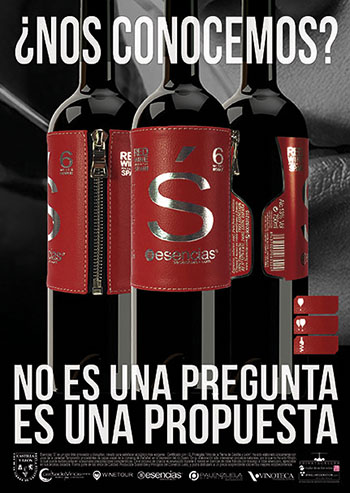
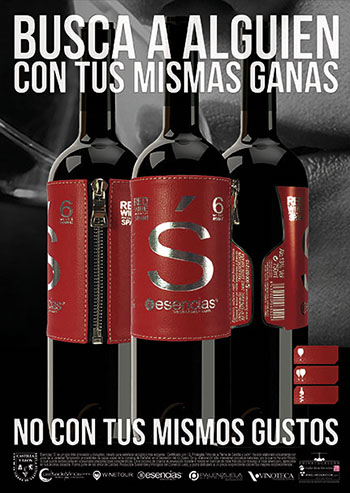
Data sheet.
Alain Jaume Grand Veneur La Fontaine Roussanne Aged 75 cl.
White wine. Alain Jaume. Grand Veneur La Fontaine. Aged. A.O.C. Châteauneuf-du-Pape. Rhône. France. Roussanne. Bottle. 75 cl..
| Variety | |
| Country of origin |  France. France. |
| Region of origin |  Rhône. Rhône. |
| Appellation of origin |  A.O.C. Châteauneuf-du-Pape. A.O.C. Châteauneuf-du-Pape. |
| Vintage / Harvest | Currently marketed by the producer. |
| Ageing | Aged |
| Format | Bottle. |
| Capacity | 75 cl. |
| Alcohol content | 14% Vol. |
| Ecological production | Yes, is an ecological product with full traceability in each of the production processes |
| Visual tasting note | Dark, Lemon reflections, Fine bubbles, Metallic shades. |
| Olfactory tasting note | Lemon peel, Pink grapefruit, Hints of jasmine flower. |
| Tasting note | Hazelnuts, , Very enveloping. |
| Recommended pairing | Tartar, Soft rice, Sweet fruits, Fish cake. |
| Consumption temperature | 10ºC - 12ºC. |
| Aging period | 10 Months. |
| Aging barrels | Roble francés. |
| Typology | White wine. A.O.C. Châteauneuf-du-Pape. |
| Producer | Alain Jaume (Vignobles Alain Jaume). |
| Name | Alain Jaume Grand Veneur La Fontaine. |
| Weight | 1.500 gr. (1,5 Kg.). |
| Product reference | WAN4549460 |
| Actual price | 41,95 € . This product is currently not available. |
| Please keep in mind | The information provided and referred to the product features and details has been provided by the expert, manufacturer or producer or published on the official sites. In no case can it be considered as assessment made by our team, unless expressly stated otherwise. We suggest you to refer to the comments and reviews posted by our customers and users to expand and contrast this information. |
| Misreading | Our team provides this information and details in ESPAÑOL language. If you browse in another language note that the information contained may have been translated from the original language through an automated real-time process that has not been supervised by our human team. In case of doubt, misunderstanding or misreading about the content of this information you should refer to the original version of this page or contact our customer service team. |
| Product image | The product image or its label is only relevant for graphic purposes, so it may not match the identification of the vintage or other features and details of the product for sale. This product is provided in the conditions and format in which it is marketed at the current time. This product is not identified or supplied in a specific vintage. The product image and label may not match the vintage identification or other characteristics and details of the product for sale. |
| Country of origin | Spain. This product is shipped from Spain. |
| (UE)401/2010 Certification | Appellation d'Origine Contrôlée (A.O.C.) A.O.C. Châteauneuf-du-Pape. |
| Production region | The production region of A.O.C. Châteauneuf-du-Pape is located in Alrededores de la aldea de Châteauneuf-du-Pape, en la región vinícola del Ródano, en el sureste de Francia. Es una de las denominaciones más famosas de la parte sur del Valle del Ródano. Los viñedos se encuentran alrededor de Châteauneuf-du-Pape y en los pueblos vecinos Bédarrides, Courthézon y Sorgues, entre Aviñón y Orange, y cubren poco más de 3,200 hectáreas. |
| Storage position | Lateral position, horizontal bottle. |
| Storage temperature | Store at a constant temperature between 10-17ºC. Humidity should be constant around 60-80%. |
| Recommendations | Keep preferably away from light. |
| Accessories | This product is provided in the conditions and format in which it is marketed at the current time. In cases where the product includes an additional packaging, box and/or case, These accessories will be included in the shipment as long as they comply with the dimensions of the special packaging adapted and approved for the transport of beverages. In general, the images of the products that we publish on our website are only relevant for graphic purposes. The images do not show other accessories such as additional packaging (box, case, etc.) or promotional elements that may occasionally be included by the manufacturer along with the product. If you wish, we can inform you about the additional packaging, elements and accessories included with the product at the current time. |
| Legal Notice | It is against the law to sell or supply alcohol to, or to obtain alcohol on behalf of a person under the age of 18 years. If you are not more than 18 years old, you must leave this website. |
| Consumption | It is recommended to drink in moderation and demonstrate a responsible consumption of alcoholic beverages. |
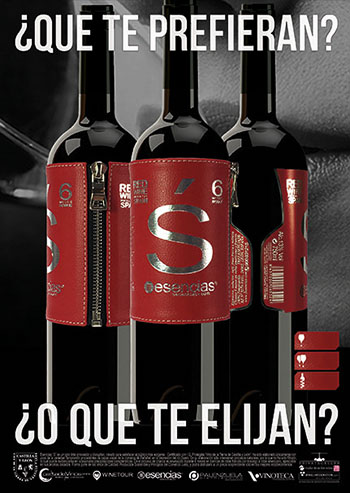
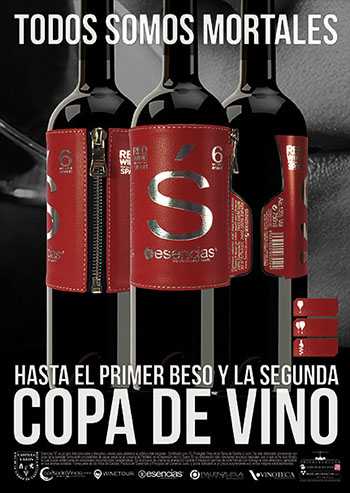
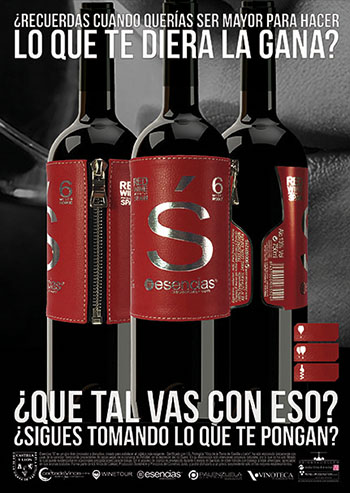
 Italy
Italy Argentina
Argentina United States
United States Australia
Australia Portugal
Portugal Chile
Chile New Zealand
New Zealand South Africa
South Africa



 Germany
Germany Austria
Austria



 Tokaj-Hegyalja
Tokaj-Hegyalja





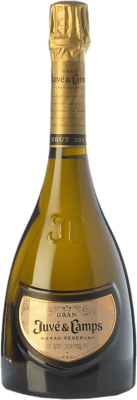
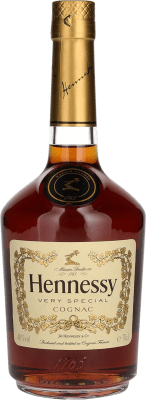

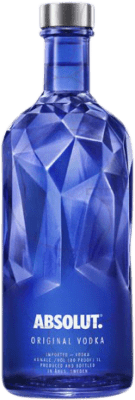






















 Language English
Language English





































